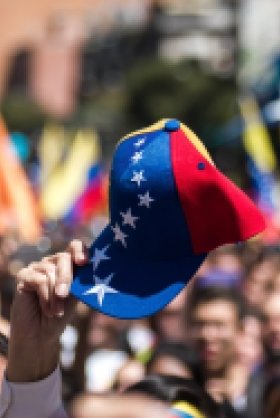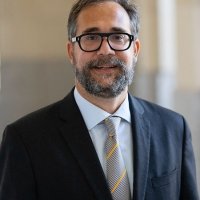Democratization in Venezuela: Thoughts on a New Path


A new report from the Latin American Program’s Venezuela Working Group explores what has impeded democratic political change in Venezuela and explores options to enhance the chances for future democratization, civil harmony, and economic recovery.
Written by Lowenthal Public Policy Fellow Michael A. Penfold and signed by 21 Venezuelan, U.S., and European members of the Working Group, the report argues that Venezuela’s dire and destructive impasse cannot be resolved until both the Venezuelan government, led since 2013 by Nicolás Maduro, and the opposition interim government established in 2019 under Juan Guaidó, recognize that their strategies have failed to solve key practical problems faced daily by Venezuela’s impoverished population, and that each lacks enduring public support to chart a credible path forward.
The report notes that, with Norwegian mediation, a new round of dialogue between the Maduro government and the opposition began in Mexico City in August 2021. Despite initial promise, the Maduro government announced in mid-October that it would not attend the next scheduled round of talks in protest over the extradition to the United States of a close Maduro associate, accused of gross corruption and money laundering.
Notwithstanding the freezing of dialogue, the report lays out why a negotiated accord, reinforcing democratic norms and institutions and promoting cooperation across political divisions, is in the interest of those who have supported the chavista movement, those who have opposed it, and the rest of Venezuelans.
Author

Professor of Political Science, Instituto de Estudios Superiores de Administración (IESA) Business and Public Policy School, Venezuela

Latin America Program
The Wilson Center’s prestigious Latin America Program provides non-partisan expertise to a broad community of decision makers in the United States and Latin America on critical policy issues facing the Hemisphere. The Program provides insightful and actionable research for policymakers, private sector leaders, journalists, and public intellectuals in the United States and Latin America. To bridge the gap between scholarship and policy action, it fosters new inquiry, sponsors high-level public and private meetings among multiple stakeholders, and explores policy options to improve outcomes for citizens throughout the Americas. Drawing on the Wilson Center’s strength as the nation’s key non-partisan policy forum, the Program serves as a trusted source of analysis and a vital point of contact between the worlds of scholarship and action. Read more

Explore More
Browse Insights & Analysis
Greenland’s New Governing Coalition Signals Consensus

Myanmar’s Junta and the 2026 Elections: A Fig Leaf for Legitimacy?

